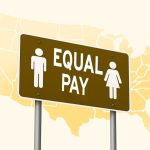When prices suddenly skyrocket—especially during emergencies or shortages—it’s natural to wonder if you’re being taken advantage of. Price gouging, the act of charging excessively high prices for essential goods or services during a crisis, is illegal in many states. But not every price hike qualifies. Before you file a complaint, it’s important to understand what counts as gouging and what doesn’t. This simple checklist will help you determine whether you’re seeing unfair pricing—and what to do about it.
Understand What Price Gouging Is
Price gouging typically refers to raising prices on essential goods or services to an unreasonable or exploitative level during a declared emergency. This can include items like food, water, fuel, medical supplies, and housing. Laws vary by state, but most define gouging as a price increase of 10% or more above the normal rate. If there’s no emergency declaration in place, the law may not apply—even if the price feels unfair.
Check for an Official Emergency Declaration
Price gouging laws are usually triggered by a state of emergency declared by the governor or federal government. Check your state’s official website or local news to confirm whether an emergency is in effect. Without this declaration, price increases—while frustrating—may not be illegal. Timing matters, too: protections often begin at the time of the declaration and last for a set period afterward.
To determine if a price is excessive, compare it to what the item or service cost before the emergency. Look at receipts, online listings, or store flyers from previous weeks. If the price has jumped significantly—especially by more than 10%—you may have a case. Be sure to factor in normal fluctuations due to supply and demand. A modest increase may be legal, while a dramatic spike could be suspect.
Document Everything
If you suspect price gouging, gather evidence. Take clear photos of the item, price tags, and store signage. Save receipts, online listings, or emails that show the inflated price. Note the date, time, location, and name of the business. The more documentation you have, the stronger your case will be. Don’t rely on memory—proof is key when filing a complaint.
Not all goods are covered under price gouging laws. Most states focus on essentials: groceries, gasoline, medical supplies, building materials, and lodging. Luxury items or non-essential services may not be protected. If you’re unsure, check your state’s consumer protection website for a list of covered items. Knowing what qualifies will help you focus your efforts.
Evaluate the Seller’s Explanation
Sometimes, price increases are due to legitimate supply chain issues, increased wholesale costs, or higher transportation fees. If a seller can justify the price hike with documentation, it may not be considered gouging. Ask politely if they’ve experienced increased costs. If they can’t provide a reasonable explanation—or if the markup seems extreme—it may be worth reporting.
Know Where to Report It
Each state has a consumer protection agency or attorney general’s office that handles price gouging complaints. Visit their website to find the appropriate form or hotline. Many states allow you to file online and upload supporting documents. Be concise, factual, and include all evidence. Reporting helps authorities investigate patterns and take action against violators.
While it’s okay to ask questions, avoid confrontations or accusations in the store. Focus on gathering information and staying calm. Confronting staff may escalate the situation and won’t help your case. Let the authorities handle enforcement. Your role is to document and report—not to police pricing on your own.
If you believe you’ve encountered price gouging, it’s natural to want to warn others. But be careful about posting accusations online without full context or evidence. False claims can damage reputations and lead to legal consequences. Instead, share general tips on how to spot and report gouging. Empower your community with facts—not fear.
Know Your Rights as a Consumer
As a consumer, you have the right to fair pricing—especially during emergencies. Price gouging laws exist to protect you from exploitation. If you feel something isn’t right, trust your instincts and do your research. By following this checklist, you can take informed action and help hold bad actors accountable. Your voice matters—and it can make a difference.
Price gouging is more than just annoying—it’s unethical and, in many cases, illegal. But not every price increase qualifies. By understanding the rules, documenting evidence, and reporting responsibly, you can help stop unfair practices and protect your community. Stay informed, stay calm, and use this checklist to take action when it counts.
Have you encountered suspicious pricing during a crisis? Share your experience or tips in the comments.
You May Also Like…
- 7 Pre-Holiday Deals to Lock in Before Inflation Changes the Price Tag
- 5 Things Behind The Rising Prices of Streaming Services
- How Inflation Is Quietly Eroding the Value of Fixed Incomes
- 10 Grocery Strategies That Beat Shrinkflation
- Grocery Prices Keep Rising While Farmers’ Incomes Fall
Read the full article here
















